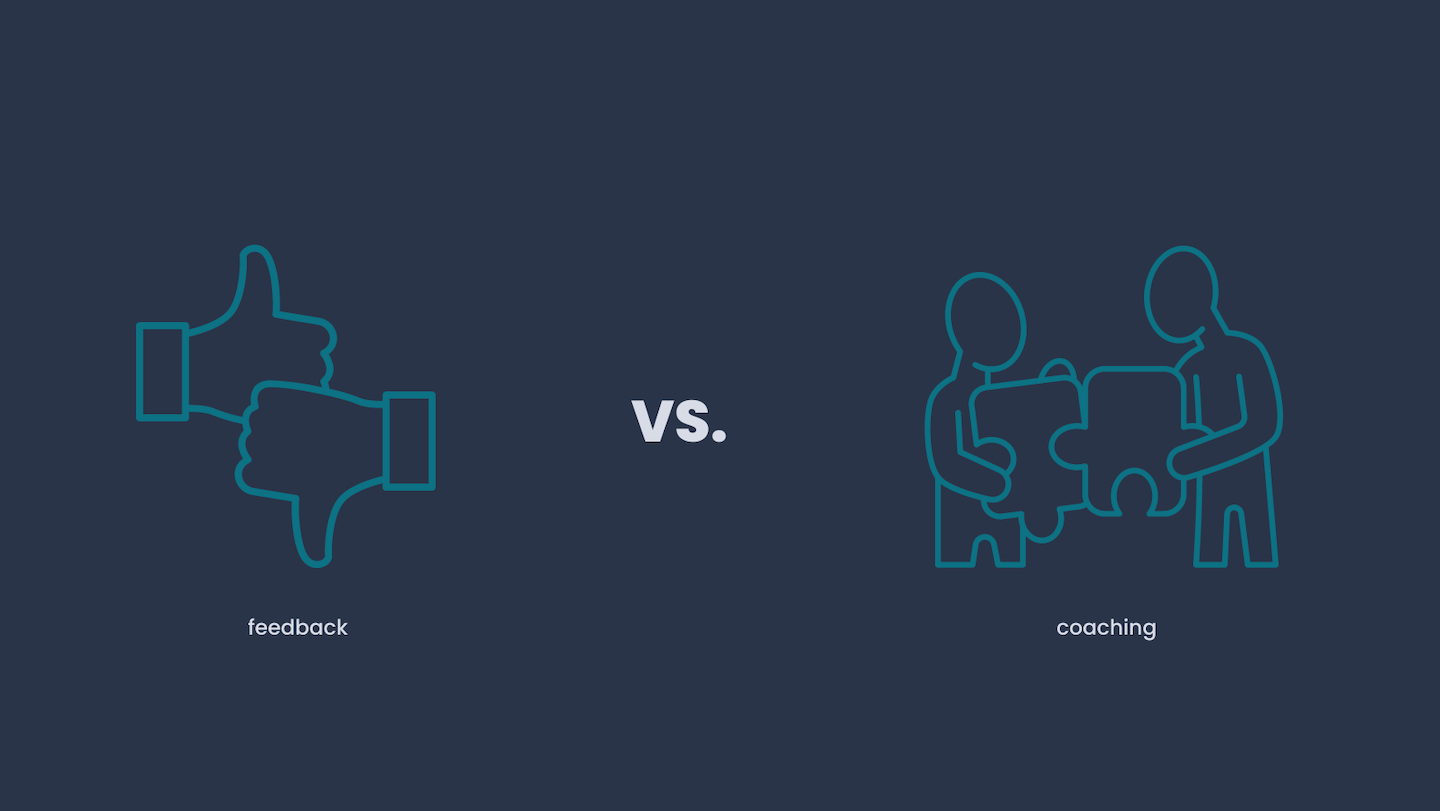If you ask sales managers their thoughts on the purpose of coaching, many will say they use it to correct negative behaviors via real-time feedback. This results in the following type of situation:
A sales rep just finished a rather tough call. As soon as he hangs up, his manager comes up to his desk and says, “I think you’re doing a great job, but…[insert negative observation here]”
The sales manager walks away, feeling certain that their feedback has coached their rep and made a difference. The rep, on the other hand, has no input on how to change their behavior — just that they did something wrong.
The outcome in this scenario leads the rep to eventually revert back to their original tactics, but this time with the nagging feeling that their manager doesn’t think they’re doing a good job.
Sounds all too common? This method has been ruining reps’ confidence and falsely reassuring managers for far too long. This is not the desired outcome of coaching, and it points to a major problem in the sales world: feedback and coaching are being treated as equals, and this could not be farther from the truth. Coaching and feedback are very different and need to be treated as such.
Before we discuss the differences between feedback and coaching, let’s make sure we’re all on the same page about the definitions of each.
Coaching vs. Feedback
Coaching: A formal process, utilizing one-on-one meetings to help salespeople achieve new levels of success. Coaching uncovers hidden issues that inhibit performance.
Feedback: information and reactions from sales managers, shared with salespeople regarding task performance. Used as a basis for improvement.
Now that we’ve laid out the technical definitions, here are four specific areas where coaching and feedback should stand on their own as different teaching techniques and learning opportunities.
1. Feedback is on the fly, Coaching is scheduled
As illustrated in the above example, feedback should be reserved for in-the-moment conversations, correcting behaviors that are preventing a rep from reaching peak performance.
These are quick conversations that should result in small, immediate adjustments by your reps.
Coaching, on the other hand, should be planned in advance and laser-focused on developing specific skills to help reps succeed and work toward reaching their professional goals.
This can involve making long-term success plans and talking over what reps are doing well, and how they can continue to improve. These sessions should happen weekly and be prepared ahead of time by both parties using a consistent documentation process.
2. Feedback is generalized, Coaching is personalized
Feedback is not meant to be a personal attack on past performance. Instead, it is a small correction to something that managers hear on the floor, in the moment. The feedback loop can be applied to most reps on the floor, which is why it’s not problematic for feedback to be overheard by other members of your team.
Coaching is more personalized and focuses on specific strengths and ways they can improve their performance in the future. These sessions are usually behind closed doors and between the manager and individual rep.
Coaching sessions give both parties a chance to have an honest discussion about what the rep thinks is and isn’t working, whether it be on a team, individual, or company level.
3. Feedback is reactive, Coaching is proactive
Referring to our narrative above, feedback is instant and meant to correct small behaviors that may be preventing reps from reaching optimal performance. It could be something simple such as, “I heard your voicemail and I think [insert technique] could serve you better in the future.”
Coaching, on the other hand, should be focused on developing skills reps already have. Working to develop said skills will eventually help reps meet their professional goals.
Each session should be tailored to the strengths and weaknesses of the individual. Coaching is not about addressing little issues overheard on the floor. Instead, it focuses on the bigger picture.
4. Feedback is present, Coaching is future
Because feedback is an in-the-moment managerial activity, it’s not meant to be thought of as concrete advice to stick to in the future. Since feedback can happen at any time, most reps won’t remember it in the long run.
Although the feedback you’re giving your team could most likely be applied to future calls, don’t expect a 10-second conversation to translate into long-term, improved future performance.
Coaching sessions are focused on changing the reps’ future behaviors in ways that will help them reach their goals. The advice given surrounding a larger discussion during a coaching session is meant to help reps to perform stronger in the long run.
Both feedback and coaching are important to develop a sales team. There are major differences between the two that must be understood before either can happen.
A healthy mix of feedback on-the-fly combined with structured coaching sessions is the best way to ensure peak performance from your entire team.
Looking for more ways to bring your coaching sessions to the next level? Check out our eBook, “7 Coaching Best Practices” for more ways to improve your coaching sessions.





